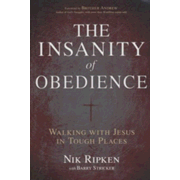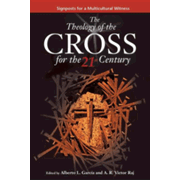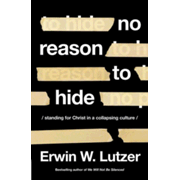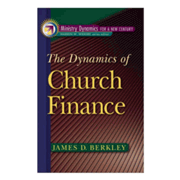OUR BIBLE study this week
discusses faith as a quality given by God, but like a seed
planted… faith must then be worked by us in the Spirit.
“And he (Jesus) said
to his disciples, "Temptations to sin are sure to come; but woe to him by
whom they come! It would be better for him if a millstone were hung round his
neck and he were cast into the sea, than that he should cause one of these little
ones to sin.
Take heed to yourselves; if your brother sins,
rebuke him, and if he repents, forgive him; and if he sins against you seven
times in the day, and turns to you seven times, and says, 'I repent,' you must
forgive him."
The apostles said to the Lord, "Increase
our faith!"
And the Lord said, "If you had faith as a
grain of mustard seed, you could say to this sycamore tree, 'Be rooted up, and
be planted in the sea,' and it would obey you.
Will any one of you, who has a servant plowing
or keeping sheep, say to him when he has come in from the field, 'Come at once
and sit down at table'?
Will he not rather say to him, 'Prepare supper
for me, and gird yourself and serve me, till I eat and drink; and afterward you
shall eat and drink'? Does he thank the servant because he did what was
commanded?
So you also, when you have done all that is
commanded you, say, 'We are unworthy servants; we have only done what was our
duty.'" (Luke 17:1-10)
 |
The Insanity of Obedience: Walking with Jesus in Tough Places By Nik Ripken with Barry Stricker |
Of Little Faith?
In this Lukan account, we find that Jesus taught his
disciples about faith expressed and its resulting outgrowth. First told was the
warning against those offending the children of God. This section, found in all
of the synoptic gospels of Mark, Matthew and Luke, was passed over by one
previous Lutheran lectionary rotation, but this section is important in that in these words
Jesus issues strong condemnation against those who lure disciples who are infants in the faith, to fall back into sin. The
text also warned those who would refrain from forgiving them when they repent.
On the topic of faith in Luke,
as requested by the disciples, Jesus related similarly to that which is seen in Mark 9:28 and
Matthew 17:19-21. In response to apparent
disappointments and perceived failures in ministry, which are felt both here and
in the other gospel witnesses… faith was described by Jesus as a small seed that
is sown. Jesus used this rather
fundamental agricultural example in teaching, but it contained a profound meaning.
He related that if the kernel of faith is received and cultivated, a faithful characteristic
would emerge and provide great opportunity for future growth. Hence, the illustration of a
tiny seed actively growing to become a huge tree is significant for our present day discipleship.
The tree described, being planted in baptismal style in the waters of a
restless sea that even may seem hostile because of its saltiness… was
seen as great potential growth for the Church.
Related next, but
only in Luke, Jesus then questioned his followers about their sinful,
individual expectations. Through example given, he reprimanded against a false theology
of personal glory. He taught that this errant theological thrust would give many
persons the impression that foremost is individual reward for
efforts. Instead, our Lord described a Theology of the Cross. In this way he taught
that the role of the whole Church, including those individual and foundational disciples,
was planted toward a faith expression that would unexpectedly move them into an abundant
future. God would accomplish abundance.
 |
Theology of the Cross for the 21st Century |
Why So In Luke?
We may ask rightly here why this latter text existed
singularly in Luke? What lesson can we learn from Luke’s particular message to
his diaspora churches in the Roman Empire in the latter days of the first
century A.D.? In seeking answer,
first
we find that using the apostolic example... a warning was sent to Luke's
churches and
thus our own… against the quest for glory. The text revealed that
already there were in the apostolic age, those who sought personal
gain in the new found faith expression of Christianity. We are called
therefore
in today’s Church to pay close attention, just as those ministering in
those early days.
We must also note that
we work in a sinful world where prosperity theology tempts us greatly. We find that we
are not to use the worldly measures of church attendance and great treasure
accumulated, as signs of our personal or corporate fidelity. Instead, as we nurture
those new to the faith we are to heed this dire warning. We must adhere to a
different, servant spirit.
In this lesson, Luke related from the common “”Q” source that
our Lord described faith as that quality given by God as seed. He tells us that
faith given by the power by the Spirit may grow into a great work. But faith
and its growth were portrayed as occurring in everyday happenings cultivated willingly
through the Spirit, worked out in a life of thankful response to the call that is given
to all disciples. Faith, because it is given through the Holy Spirit, is
not a trait nurtured and shown as an individual possession. Faith possessed is not a foundation
for boasting. Faith is the foundational work of the Holy Spirit that should be expressed by both individuals and
the Church… through lowly service. This faith expressed is the basis for
forgiveness and restoration to the world around us.
We in the modern
Church must note, however, that the gospel message is yet to be preached. Forgiveness
of sin is to be made available again and again… to those who around us who may soon repent
and turn. Thus faithful partnership in our work within the kingdom will be indeed
blessed by the Creator through Christ our Lord. The kingdom will be forthcoming
as promised, both now and in the future… as formed by the Holy Spirit. For it is surely God who indeed plants all this through the waters of baptism and
the gift of the Spirit.
For those who wish to dialog about evangelism in the public square, we recommend this entry into a four-part video series...
Are In Home Bible Studies Key?







